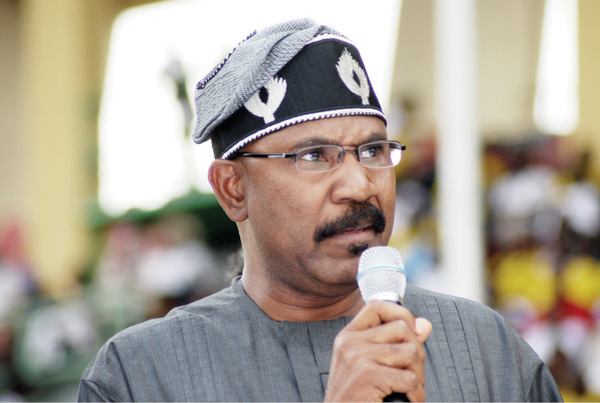Health
We’ve developed diagnosis, drugs for sickle cell, others – Science Minister

The Minister of Science and Technology, Dr Olorunnimbe Mamora, says the ministry through, its agencies, has developed diagnostic process, treatment and drugs for common diseases like sickle cell and hypertension.
Mamora disclosed this on Tuesday at the Presidential Villa, Abuja, while featuring in the State House briefing organised by the Presidential Communications Team.
The minister said that his ministry had also made significant achievements in food processing and fabrication of equipment to boost food production.
“In the area of medicare and health of Nigerians, of course a lot of these came to the from burner during the COVID era; so many things were developed from our indigenous companies under our various agencies like the disinfectant towel, sanitisers, solar-powered smart hand washing machine.
“Nigeria has a very large population of sickle cell disease patients and carriers; to that effect, I can tell that we have able to develop products from plants that combat or they are anti-sickening in nature and therefore reduce the number of attacks that usually result from sickle cell anemia.
“We have also been able to develop anti-hypertensive drinks from local herbs and materials.
“Then one important drug that is very expensive—Lovastatin—a drug that reduces cholesterol; cholesterol is injurious when it is above the limit of normal; this has been developed from oyster mushroom.
Of course, we must also look at what it common to us; tuberculosis, ebola, hepatitis—these are common diseases that we have around us.
“I can say that through our molecular diagnostic laboratories, we have been able to develop mode of identifying or making diagnosis because the first step in the management of a patient is to make the right diagnosis; if you don’t make the right diagnosis, you cannot treat what you don’t know.
“So, that is why this ability to make diagnosis is very important which some of our agencies have been able to do in terms of discovery.”
On agriculture, he said that a recent document—Nigeria 2050 Agenda– estimated that Nigeria’s population would be about 350 million by 2050 while the current estimate is 200 million.
According to him, with such population, food remains critical in order to eliminate poverty.
He said that attention was focused on how to improve food output to ensure that there was food security.
“That’s one of the things that we are trying to achieve.
“So, that’s what we have what is called Tacca (false yam) for the production of starch and glucose syrup which reduce the pressure on yam, cassava and maize for the production of industrial raw materials.
“We have also been able to develop the extraction of glucose syrup and ethanol from sweet sorghum.
“We have been able to boost agricultural programmes through the development of improved seeds and seedlings that are distributed to farmers—these include cowpea, rice, ginger, banana, plantain, cassava, sugar among others.”
The minister said that Nigeria had previously recorded post-harvest loses; hence the ministry through its agencies, developed seeds that were resistance to pests and flooding.
Mamora said that the ministry was able to put in place, methods of preserving harvests to avoid rots and boost yields.
He said that the ministry and its agencies had produced equipment for processing of food and preservation of raw materials.
“We have the fabrication of standard processing machines to process onions and garlic into flakes thereby preserving them.
“The ministry through Raw Material Research and Development Council has been able to increase the daily milk yield of our cows from meager one litre/1.5 litres of milk per cow to over 15 litres of milk per cow daily.
“We have also been able to develop moringa fortified livestock feed for fish, aquaculture and environmentally friendly insecticide.
“We have been to develop some ready to use protein based therapeutic foods.
“One of the agencies, National Research Institute for Chemical Technology, has been able to develop Nitrogen Urea fertiliser.
“Through Federal Institute of Industrial Research, Oshodi, we have been able to develop rice thresher and destoning machine –to remove a lot of stones from rice; coconut oil extraction machine, yam pounding machine among others,” he said.
The minister said that his ministry had performed creditably in research and innovation in areas of education, defence and security, capacity building, space, energy and power, manufacturing, business among others.




 Davido's Net Worth & Lifestyle
Davido's Net Worth & Lifestyle 
